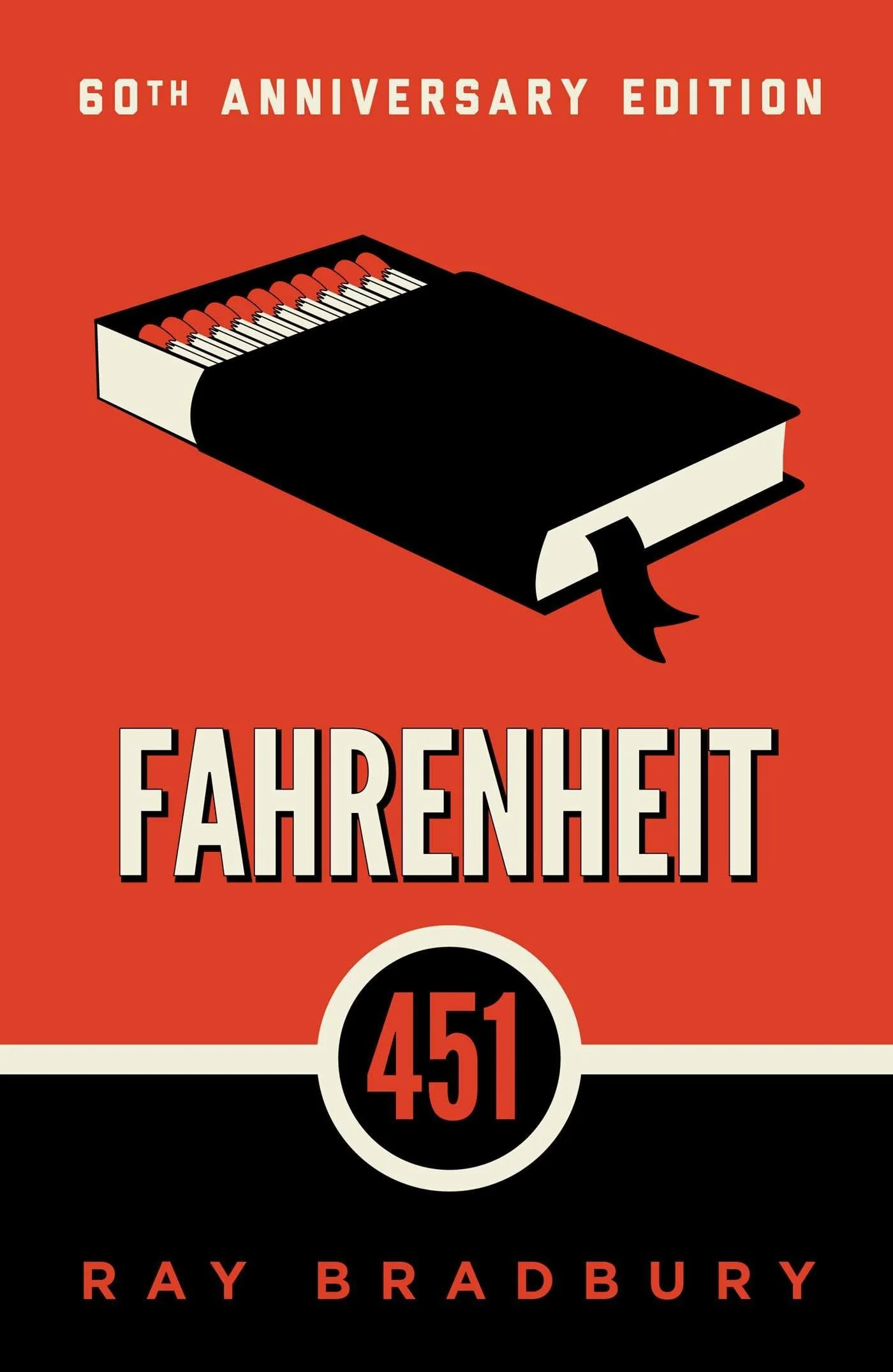Fahrenheit 451
BOOK REVIEW
Fahrenheit 451 - Ray Bradbury
Heralded for its dramatic book burning imagery, but flavourless writing belies its place amongst the greats
A well-timed Instagram post reached me at a susceptible moment: in a phase of deep engrossment with contemporary autocracies and at the juncture of summer’s end, when for no clear reason my mind is seasonally hungry for fiction. It struck me that although I’ve read many of the 20th century dystopian classics, Fahrenheit 451 had escaped my attention. By evening I was several pages into my newly purchased copy. (As a matter of principle, I try my hardest not to buy books second-hand so as to best honour the author’s labour. There is an environmental impact to this mantra, but I believe decorating the world with more books outweighs this concern. For the same reason I object to e-readers, those nauseatingly stale tablets whose digital sheen drains a page flip of any satisfaction.)
To understand Fahrenheit 451’s place in literature, one must contextualize it against the axis of history. The world had recently witnessed the horrors of Nazism and Stalinism, both of which were characterized by revisionist ideology, executed on by the flames of book-hunting match-men. Bradbury, a true bibliophile, initially struggled to sell his manuscript as there was little appetite amongst publishers to print a story about censorship, past or future. At last a breakthrough came when a new, more risqué magazine expressed interest in featuring the story for its initial editions. The magazine was the recently launched Playboy and its editor none other than Hugh Hefner.
“Cram people full of non-combustible data so they feel stuffed but absolutely ‘brilliant’ with information. They’ll feel like they’re thinking, they’ll get a sense of motion without moving. Don’t give them any slippery stuff like philosophy or sociology to tie things up with.”
Unfortunately, while the notion of a society turned to book burning is perversely captivating – even more so just after World War II – Bradbury’s writing leaves much to be desired. Most novels of this genre bridge their story’s dystopic setting to a past, more familiar world, elucidating the reader on how the grip of authoritarian control crept in. This is lacking in Fahrenheit 451: there are vague allusions to prior events and the scene of reveal, in which the Fire Captain tells us the Official Version of Events, is a salad of cookie-cutter passages that could just as easily have been extracted from other classics. There is no Winston being held in Room 101 (Nineteen Eighty-Four) or salacious stories of soma-induced activities (Brave New World). Perhaps choice has spoiled my tastebuds, but I expected more from a work of this reputation. The missing je ne sais quoi is like an animated cartoon cycling through the same string of sketched 2-D backgrounds frame after frame.
I also felt disconnected from the protagonist Montag, whose demeanour remains largely unshared with the reader, whether in a moment of pensiveness or panic. The driving force for his insurgent behaviour was still incomprehensible by the book’s finish and on the whole he comes off as a rather flat character. Fahrenheit 451 does hit an inflection point halfway through, becoming more readable as the plot advances, but the passages of action serve as an unimaginative way to close out rather than a contribution to any motif.
“Because you don’t have to burn books, do you, if the world starts to fill up with non-readers, non-learners.”
By now my disappointment must be apparent, though reminding myself of his era I believe Bradbury is still to be credited for a prescient concept. In the seventy-odd years since publication, many governments have succumbed to the censorious instinct of paranoia. Today we may think of Beijing and Moscow as leading examples, yet we’re quick to forget that many Western countries still have nefarious laws around freedom of expression, regulating such arbitrary concepts as ‘hate speech’ and ‘unpatriotic speech’. For the most part, these laws lie dormant today, but they could be weaponized at any time. (Some may argue this has already happened.) Burning books is the most dramatic expression of this tyranny and we must never be so servile as to let such an abomination occur.
-NP, October 2022
Reading notes from Fahrenheit 451
